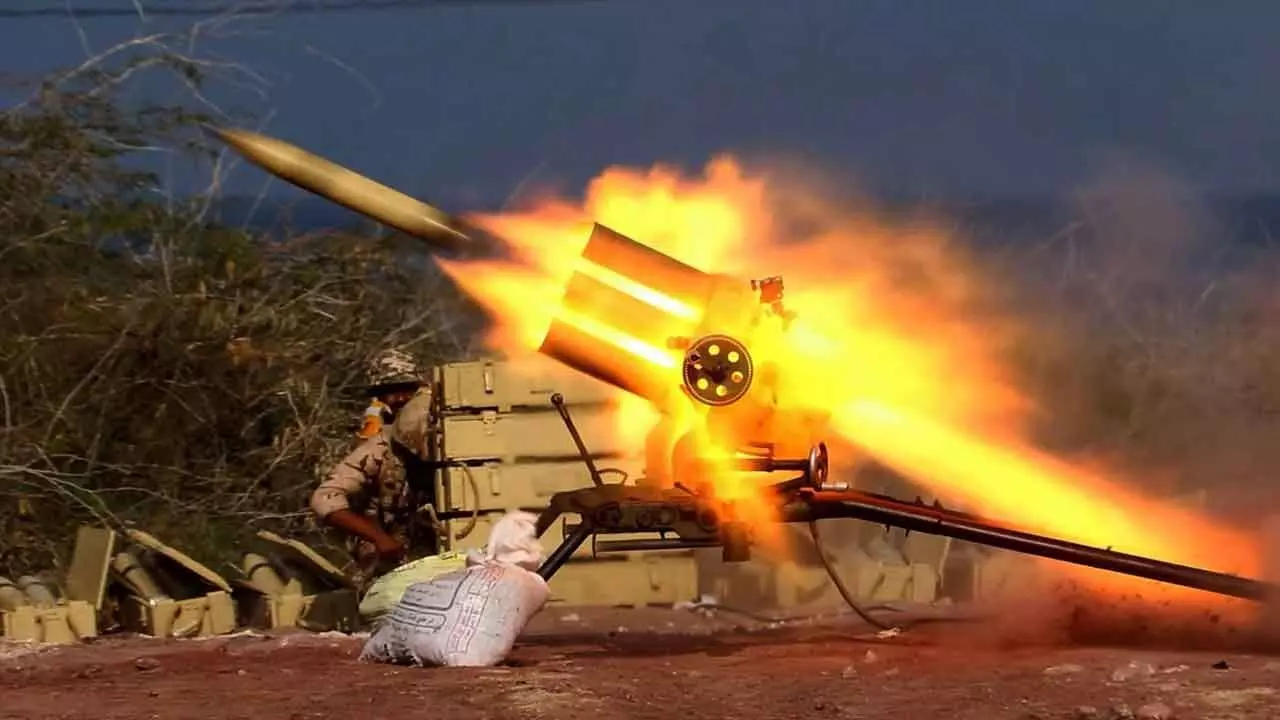Middle East on the Brink: Iran's Latest Missile Barrage Sparks Global Alarm as US Rushes Reinforcements and China Urges Evacuation from Israel
The Middle East plunges deeper into crisis as Iran launches fresh missile attacks on Israel, prompting a US military alert and China's urgent evacuation advisory. Explore the escalating conflict, rising casualties, and global implications of this direct confrontation.
Middle East on the Brink: Iran's Latest Missile Barrage Sparks Global Alarm as US Rushes Reinforcements and China Urges Evacuation from Israel

TEL AVIV/TEHRAN/BEIJING – June 17, 2025 – The Middle East finds itself teetering on the precipice of an unprecedented regional conflagration as Iran unleashed a fresh volley of missiles targeting Israel. This aggressive move, a direct response to a significant Israeli offensive on Iranian nuclear and military sites that began days prior, marks a harrowing transition from a long-standing "shadow war" to a perilous, overt military confrontation. The immediate aftermath has seen US troops in the region placed on heightened alert, while China, a major global power, has issued an urgent directive for its citizens to evacuate Israel, underscoring the severe and rapidly deteriorating security landscape.
Over the past 24 to 48 hours, the echoes of explosions have reverberated through both Tel Aviv and Tehran as these entrenched adversaries engage in increasingly destructive tit-for-tat exchanges. Iran's latest missile launches have reportedly resulted in fatalities and injuries within Israel, with residential areas and even the US Embassy in Tel Aviv sustaining damage. Simultaneously, Israel has continued its deep strikes into Iranian territory, targeting critical infrastructure such as the state television headquarters, key military complexes like Parchin, and potentially sensitive nuclear-related facilities in Natanz. Iranian officials have tragically reported hundreds of casualties, predominantly civilians, from these relentless Israeli assaults.
The volatile situation has prompted a significant response from the United States, with US forces across the Middle East now operating under a state of high alert. The Pentagon has confirmed the strategic deployment of additional naval assets and aerial refueling tankers to the region. The formidable USS Nimitz carrier strike group is currently en route to reinforce the already present USS Carl Vinson group, creating a substantial naval presence. Furthermore, three destroyers, including the USS Thomas Hudner, are being positioned in the Eastern Mediterranean, bolstering ballistic missile defense capabilities. While US officials emphasize a defensive posture, President Donald Trump has issued unequivocal warnings to Iran against any targeting of American interests. The recent downing of drones reportedly aimed at a US base in Iraq serves as a stark reminder of the widespread instability plaguing the region.
Adding a chilling dimension to the international alarm, China's embassy in Israel has taken the drastic step of issuing an urgent advisory, urging all Chinese nationals to depart the country "as soon as possible," primarily via land crossings into neighboring Jordan. Beijing cited the escalating conflict, severe damage to civilian infrastructure, and the mounting toll of casualties as the critical factors necessitating this evacuation. This decisive action by China highlights the profound concerns held by major global powers regarding the terrifying potential for a wider regional conflagration. China has consistently reiterated its calls for de-escalation and a return to diplomatic dialogue, with Foreign Minister Wang Yi actively engaging with both Israeli and Iranian counterparts in a desperate bid to calm tensions.
This current direct confrontation, which dramatically escalated with Israel's initial strikes on June 13, 2025, represents the most severe overt military exchange between the two nations in decades. While Israel staunchly maintains that its actions are imperative to prevent Iran from developing nuclear weapons – a claim Tehran vehemently denies – the relentless cycle of retaliatory attacks has pushed the entire region to the very edge. Urgent international calls for restraint from global leaders, including French President Emmanuel Macron and the United Nations, have regrettably gone unheeded, as both sides appear to be deeply entrenched in their positions. The full and far-reaching implications of this intensifying conflict on global stability and vital energy markets remain a paramount and deeply troubling concern for the world.

